|
3rd November 2020 It's a Tuesday and I'm not at the Woking Gaming Club, I am however in Woking, in Simon's converted home-office for what would be the last time I play a game with a friend in person before lockdown 2 began. It was an unusual setup, two us were in Simon's office and Colin was dialling in via Zoom, able to view the game through Simon's phone which was clamped above the table. Tonight we played Gloomhaven: Jaws of the Lion, the little sibling of Gloomhaven. Like Gloomhaven, it's a cooperative RPG with a legacy element. Caveat: This blog post may differ a little from the ones I normally write. When we played the game, a number of the components were not used, instead they were replaced with an app, it also allowed Colin to remotely log into the app and see the same information we did. Additionally, both other players were very familiar with the game. What's in a game? Gloomhaven: Jaws of the Lion comes with a lot of components and a lot of cards.
What art there is on the components is good and the components are of a high quality. How's it play? The game follows the paradigm of an RPG; there are a series of linked scenarios that form a campaign. As characters progress from scenario to scenario, they accumulate experience points and become stronger. Characters are persistent and they and their progress carry over between scenarios. There are also legacy elements here, decisions that players make during the game will have some sort of effect later on. Setup The setup is fairly quick and simple, mostly because the game uses map books instead of tiles.
On to playing In each round, the players will choose 2 cards from their deck to play. Enemy behaviour is dictated by the game.
Endgame A scenario will end when its win/lose conditions are met. If the players win the scenario they gain experience points, characters gain experience points according to the scenario. Additionally; certain action cards grant characters experience points when played, these are added up as well. When a character acquires enough experience points, they will level up and gain whatever benefits it confers. During the game, enemies that are defeated will drop treasure. If characters collect these treasures, they gain gold after the scenario ends. Gold can then be spent to acquire more or better item cards. Next, there is an encounter as determined by a randomly drawn city card. After this, players are given the choice of what scenario to attempt next. This may involve adding a sticker to the map or some other legacy type action. Overall
There's a lot to think about here. There's a lot of components to the game too and it might be a bit fiddly. But it seems to me that most of this occurs during setup. I can't imagined how much setup the full Gloomhaven requires without the map books? The character-gameplay is actually pretty straightforward, simple to learn and goes smoothly enough. Enemy behaviour may be a bit trickier and it probably pays to have some one who is familiar with the rules (As we did.) when playing. The action card mechanic was pretty well implemented, it not only gives players options and a bit of flexibility, but meaningful decisions to make. The rest mechanic is also a good addition, it forces players to act, be decisive and deters them from trying to play overly safe and spend too many turns resting to regain hit points. Since a character deck only has 10 cards, it means that a plaery will empty their deck in 5 rounds. Then they have to decide to discard 1 card and miss a turn, or discard one at random and continue, which can be a hard decision. Now you have 9 cards and only 4 turns before facing the same dilemma. Additionally, some cards are discarded when use and so on. All of this serves to create sense of urgency, a need to complete the scenario before player decks become too depleted. Players will want to minimise the time they waste carrying out long rests. Combat is a bit of a mixed bag. There are a good number of special moves, conditions and effects that play a role in combat. The four different characters can feel different in combat because of it. I dislike the cancel result on the combat deck that waste an attack, I imagine that if a player has set up a powerful move using a card that gets discarded - only to have that entire attack negated, it must feel gutting. I'm not sure how I feel about using individual decks as a randomizer for combat, I can see the appeal of having a customisable individual randomizer for each player, but it seems like having components for the sake of having components. It works well enough, but I'm sure a similar effect could achieved with a single bunch of dice that are collated for individual rolls. Gloomhaven/Gloomhaven: Jaws of the Lion are 2 games that are sort of chasing a board game holy grail. These are games that are trying to an give RPG style gameplay and experience, but without a GM. It's a tricky goal; too simple and it becomes bland and repetitive, too complex and the game gets bogged down in rules, rules exceptions and components. Gloomhaven: Jaws of the Lion seems to straddle that line fairly well. Although as I mentioned above, we did use an app to facilitate play. It did have the advantage of allowing a player to join in a board game where he played over zoom! Maybe this is the way to go, where an app does the GM heavy lifting, I've seen at least one game that requires an app, no doubt there will be more games that do that. But this raises the question of legacy, an older game can (And probably will.) be rendered obsolete if the companion app becomes unavailable. Overall though; I was happy enough to play it and will be continuing with the campaign I joined.
0 Comments
Leave a Reply. |
AuthorI play, I paint. Archives
March 2024
Categories
All
|


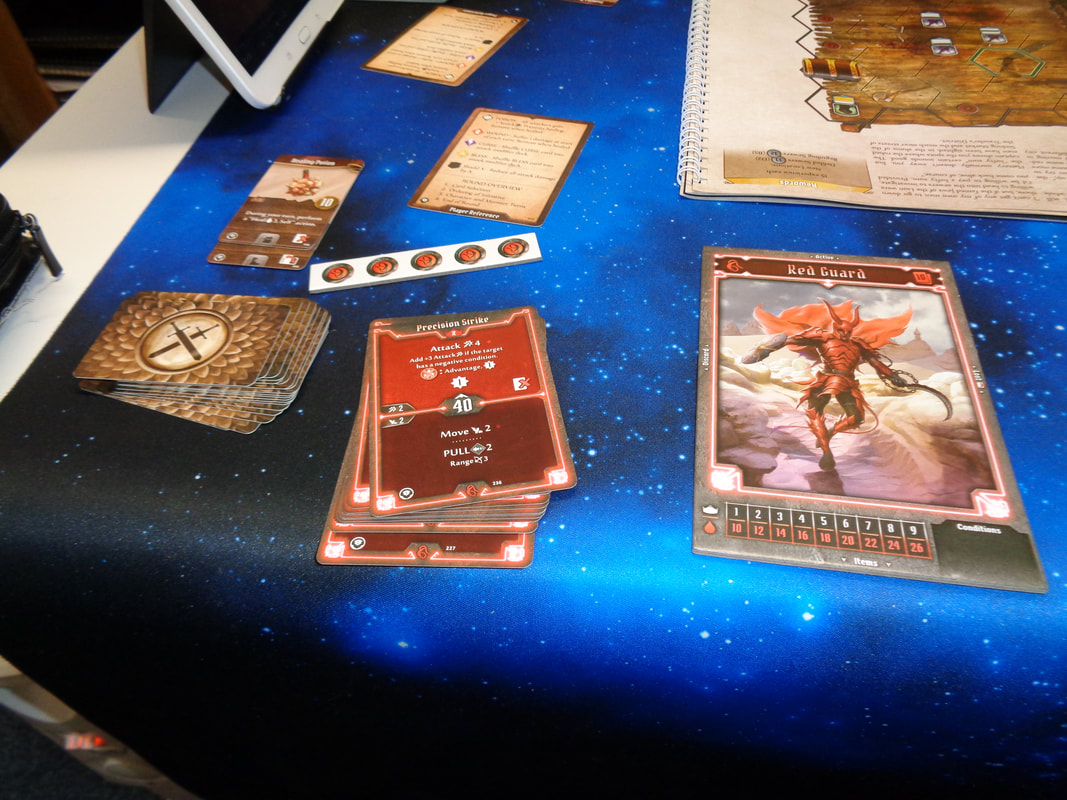
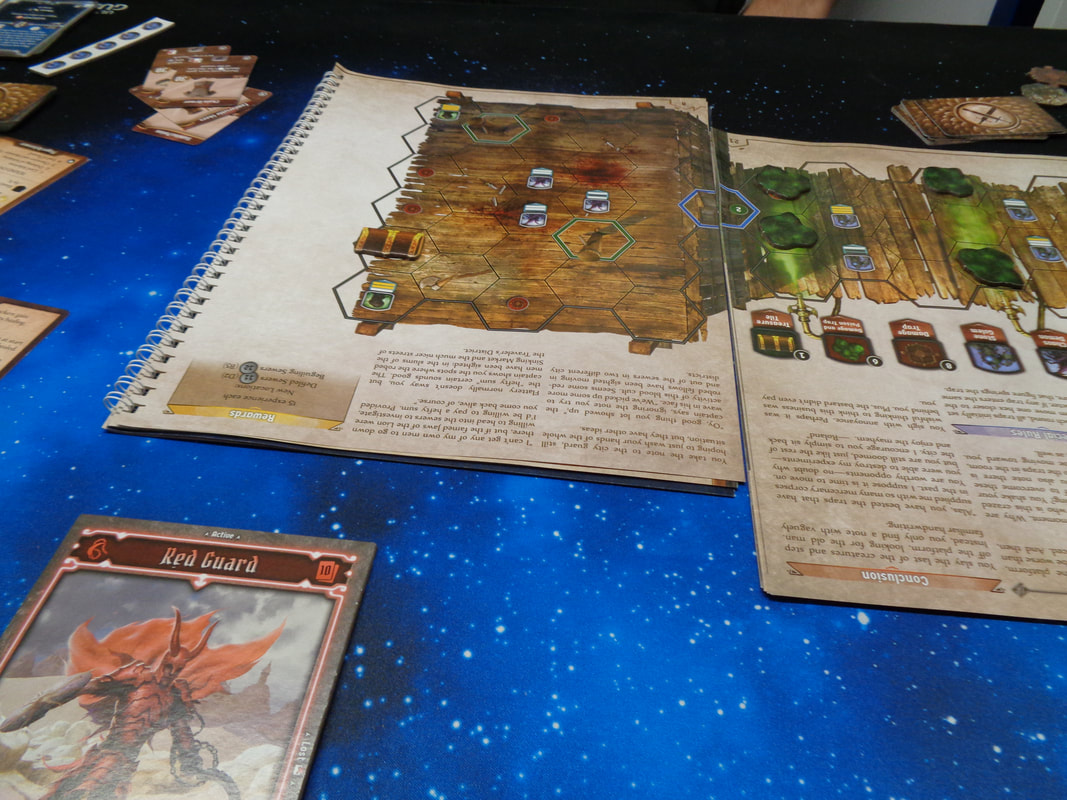
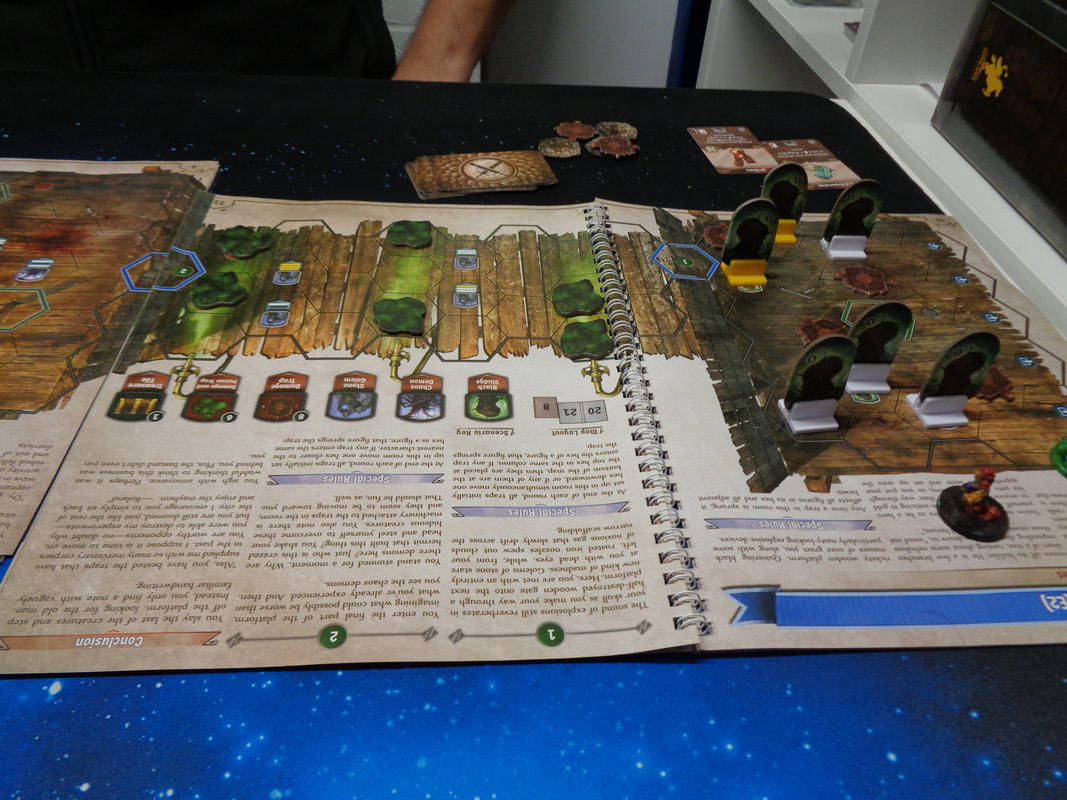
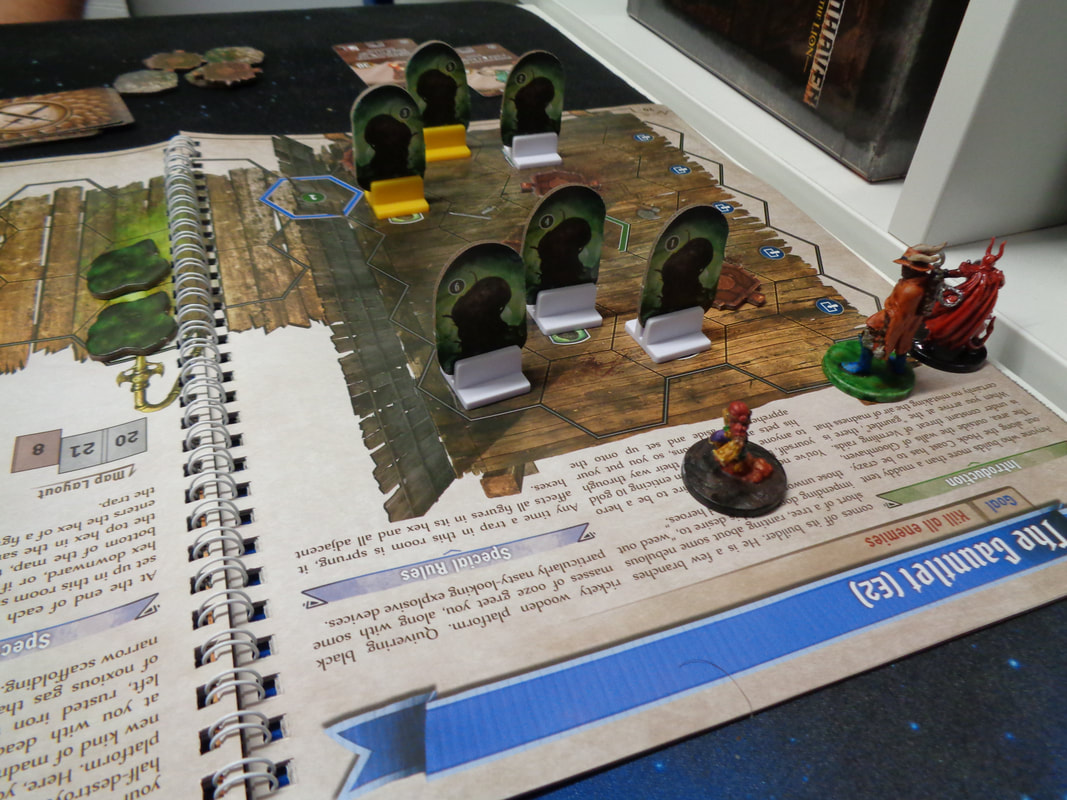
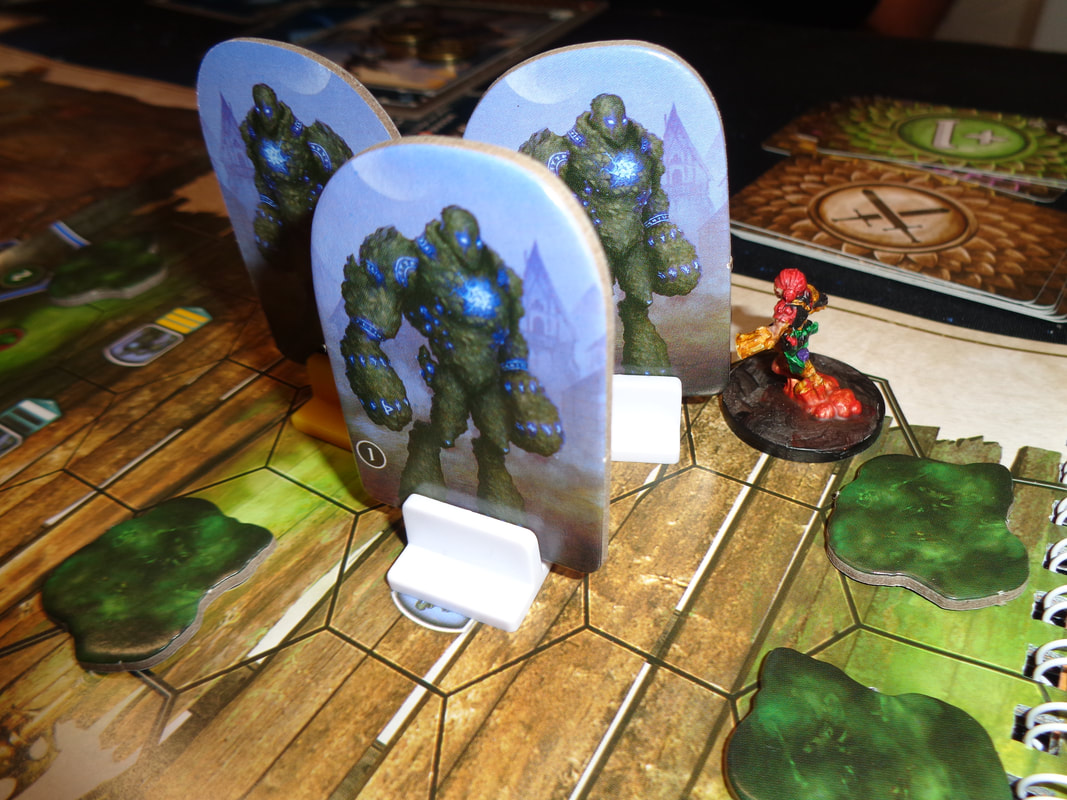
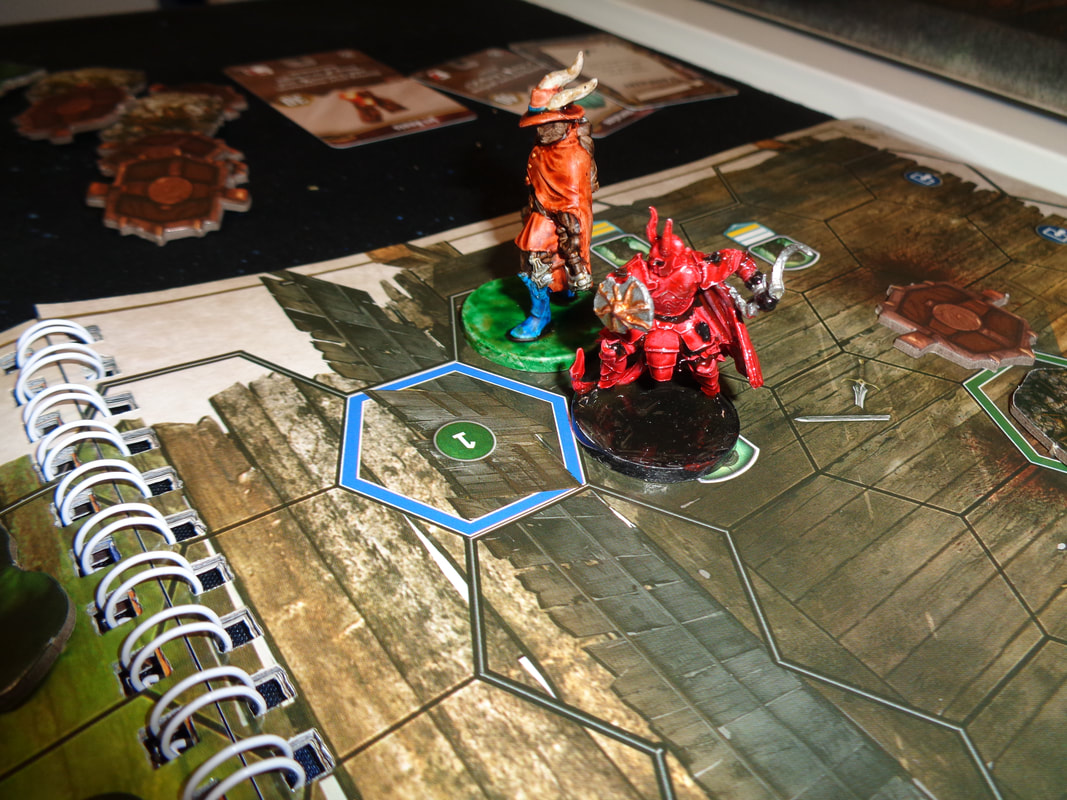
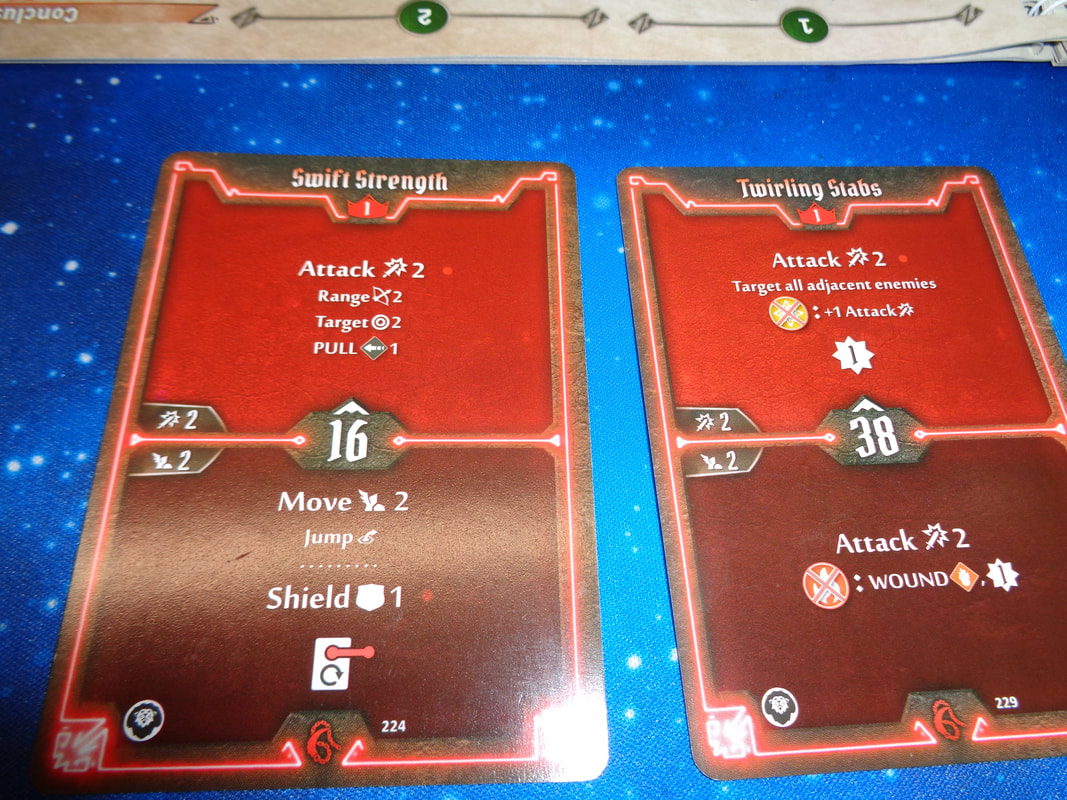
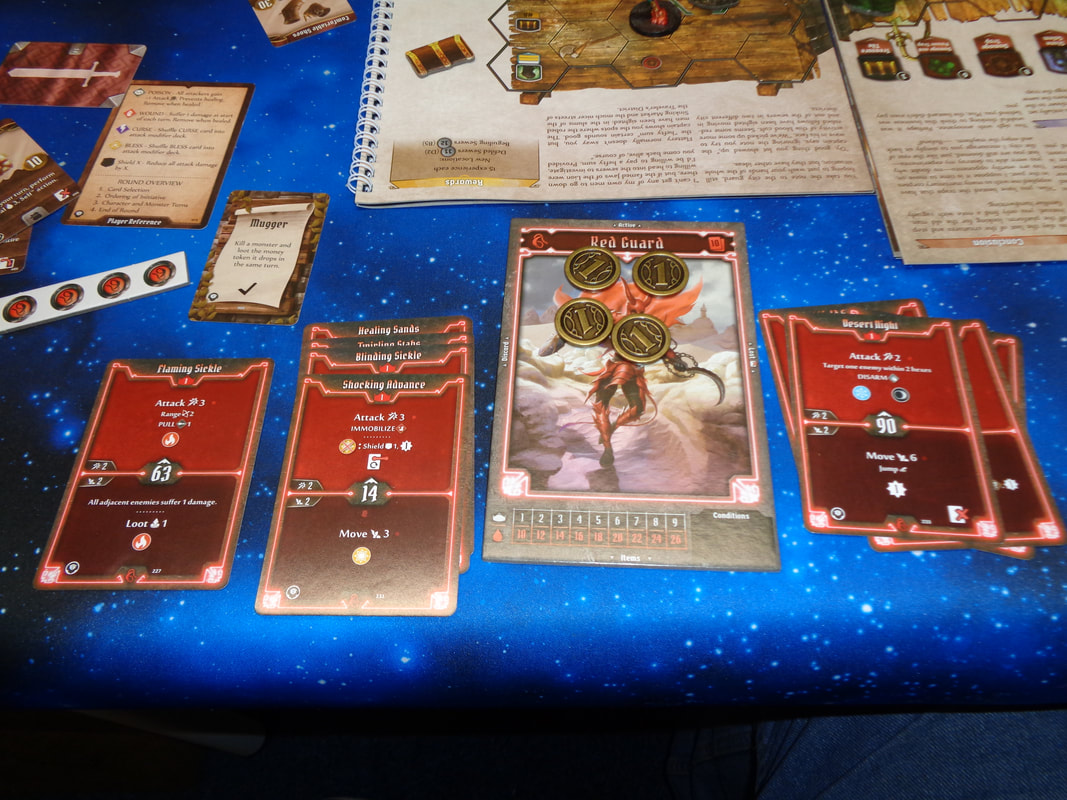
 RSS Feed
RSS Feed
